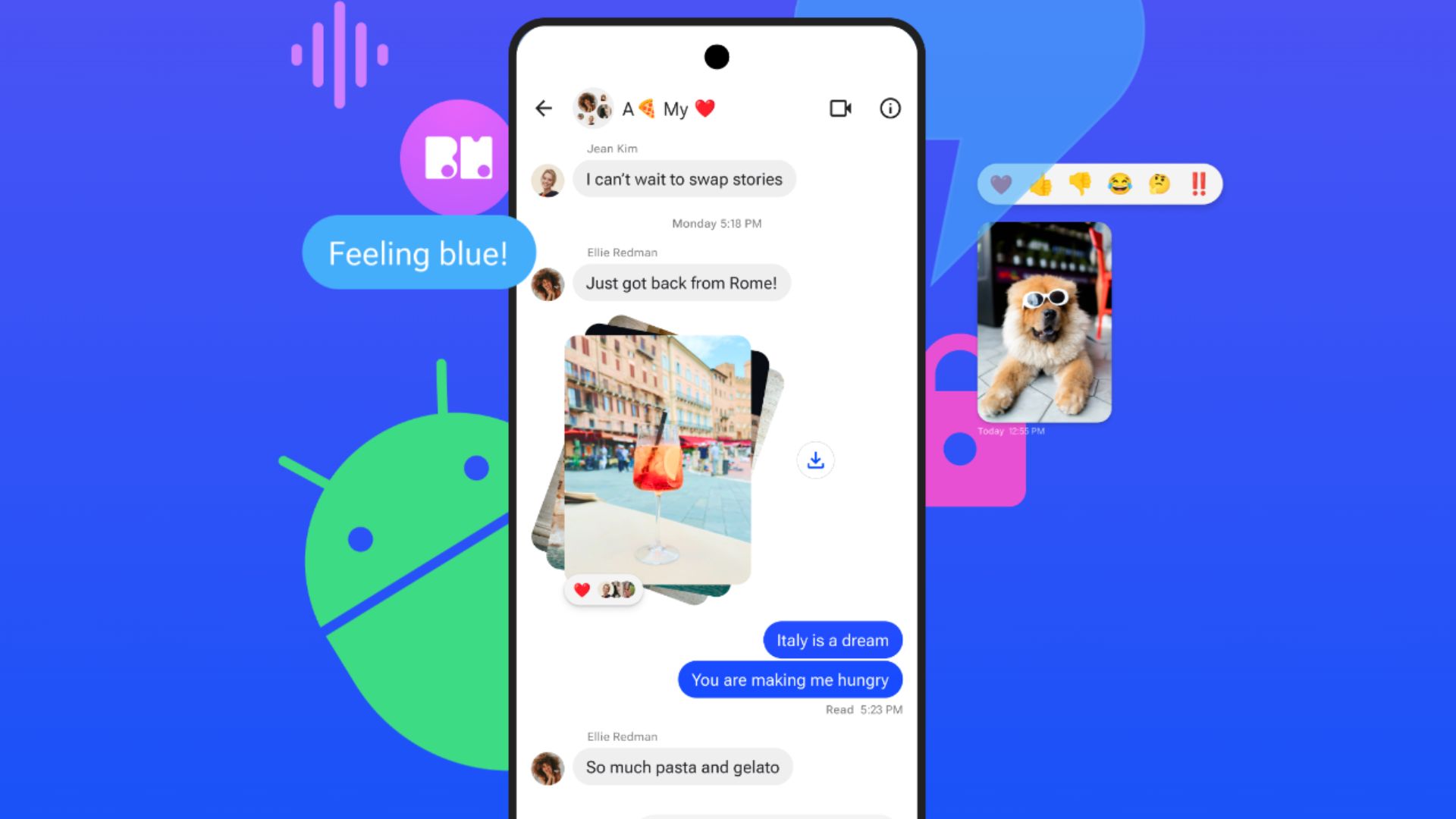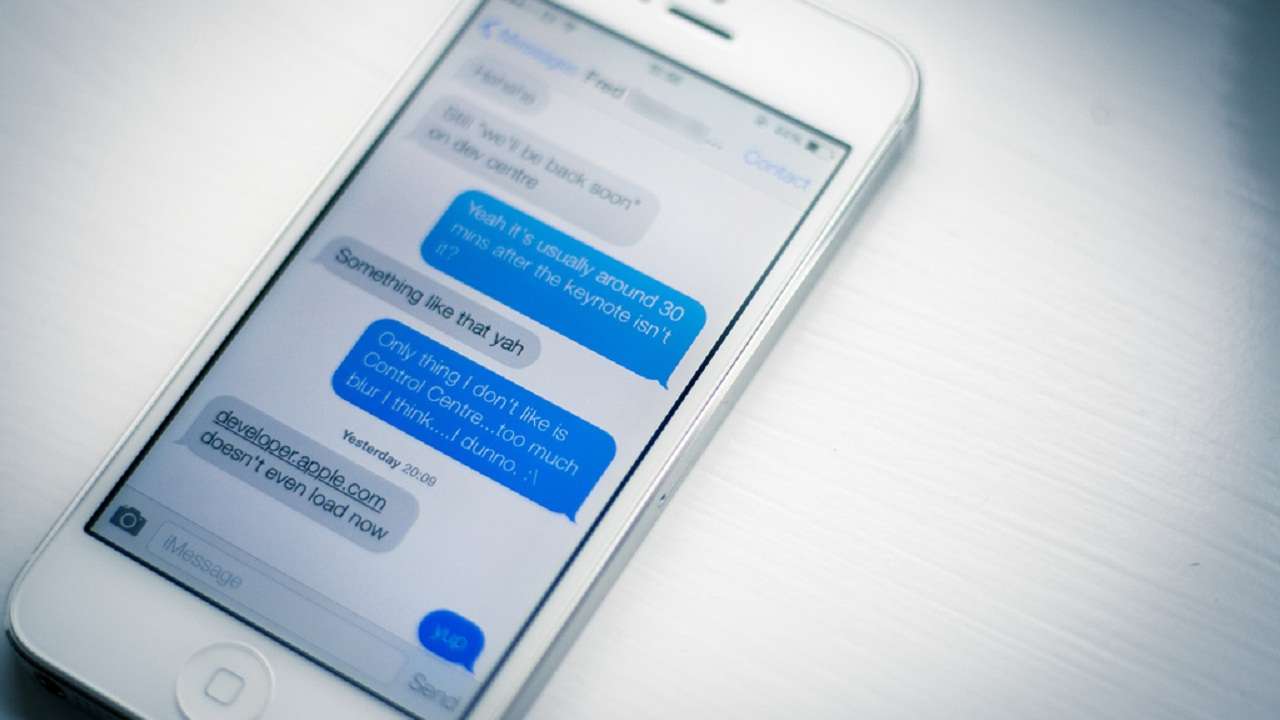Want iMessage on your Android phone? You'll now need Beeper Mini... and a Mac
Beeper Mini’s latest iMessage fix requires you to have a Mac

Sign up for breaking news, reviews, opinion, top tech deals, and more.
You are now subscribed
Your newsletter sign-up was successful
Beeper Mini – the latest app to end the blue/green bubble divide between Android and Apple smartphones by bringing iMessaging to non-iPhones – might have a way to bypass the latest blocks Apple has put in its way, but you’ll need a Mac.
To access iMessage through Beeper Mini you always needed an Apple computer to generate iMessage registration data, but until now the company behind Beeper was using its own bank of Macs to generate the required data. This idea works well in principle, but not so much in practice.
As the company explained in a Reddit post, because all Beeper users had the same registration data they were an “easy target for Apple.” So the plan is to have everyone use unique data, but to do that you’ll need your own Mac, or at least access to one through a loved one or friend – so you don’t need to buy one of the best Macs or MacBooks for yourself.
According to Beeper, this unique registration data will be made available through Beeper Cloud (Mac version) – and it can then be used in Beeper Mini on other devices. The source code for this data generator will also be made open-source through GitHub if you’d prefer to handle things yourself.

If you are using someone else’s Mac, there are a couple of things to note. On the positive end, Beeper says that in its testing it found that 10 to 20 iMessage users can safely use the same registration data – so borrowing a Mac won’t lock your friend from also accessing Beeper. (Though who knows how long this will remain true…)
The downside is that your friend will have to be prepared to help you more than once. New registration data apparently has to be generated once a week or month. So you’ll regularly need to pester your friend for a new code. You’d still need to re-register if you had your own Mac, but it would be a lot easier to manage your Beeper connection at your own pace.
A no-win scenario?
While Beeper is putting up a commendable fight, this success feels a lot more like another nail in the coffin. Whether you have a Mac or not, accessing iMessage through your Android phone has become a lot less convenient – and is the juice worth the squeeze when you could simply use a different messaging service like WhatsApp or one of the many others shared between Apple and Android.
Sign up for breaking news, reviews, opinion, top tech deals, and more.
And given the vastness of its resources, it’s more a matter of when, not if, Apple finds a way to counter this latest Beeper workaround. If it does somehow lose to Beeper then Apple could just play its trump card by releasing iMessage on Android itself – though this would likely be its very last resort.

I would like Beeper to succeed. While its sights are set on iMessage right now the end goal is a one-stop app connecting all your messaging services – texting, RCS, iMessage, WhatsApp, and the rest – which sounds pretty darn handy. But right now the app seems destined to be crushed under the might of Apple.
The only thing that could save it is some kind of anti-competitive lawsuit like the ones we’ve seen levied at the Google Play Store and Apple App Store in recent years. But Apple won the App Store case, and while I’m no lawyer I imagine it’d be much harder to dub iMessage some kind of monopoly when 1) Apple makes no money on it and 2) there are other messaging services on iPhones.
We'll have to wait and see what happens, but as our US editor-in-chief has previously explained it'll take a serious change of heart from Apple for us to get an Android version of iMessage.
You might also like

Hamish is a Senior Staff Writer for TechRadar and you’ll see his name appearing on articles across nearly every topic on the site from smart home deals to speaker reviews to graphics card news and everything in between. He uses his broad range of knowledge to help explain the latest gadgets and if they’re a must-buy or a fad fueled by hype. Though his specialty is writing about everything going on in the world of virtual reality and augmented reality.